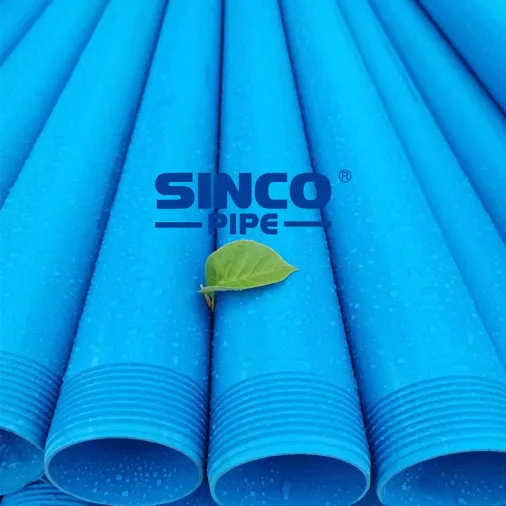What are the advantages of uPVC pipe?
uPVC, or unplasticized polyvinyl chloride, pipes are a popular choice in various applications due to their numerous advantages. These pipes, made from rigid PVC without plasticizers, offer several benefits that contribute to their widespread use in plumbing, construction, and other industries.
**1. Corrosion Resistance: uPVC pipes exhibit exceptional resistance to corrosion, making them ideal for transporting various fluids, including water and chemicals. Unlike metal pipes, uPVC pipes do not corrode over time, ensuring long-term durability and reliability.
**2. Chemical Resistance: uPVC pipes are resistant to a wide range of chemicals, acids, and bases. This resistance makes them suitable for conveying substances in industrial applications where exposure to corrosive materials is a concern.
**3. Lightweight and Easy to Handle: One of the key advantages of uPVC pipes is their lightweight nature. Handling and transporting these pipes is easier compared to heavier alternatives, simplifying installation processes and reducing labor costs.
**4. Smooth Interior Surface: The interior surface of uPVC pipes is smooth, which facilitates a consistent flow of fluids. This smoothness minimizes friction, reducing the likelihood of clogs and improving the overall efficiency of fluid transport.

**5. Low Thermal Conductivity: uPVC pipes have low thermal conductivity, meaning they are effective insulators. This property helps in maintaining the temperature of fluids being transported, whether hot or cold, without significant heat loss or gain.
**6. Long Service Life: uPVC pipes have a long service life, often exceeding several decades. Their durability and resistance to environmental factors contribute to a prolonged lifespan, reducing the need for frequent replacements.
**7. Cost-Effective: uPVC pipes are cost-effective in terms of both material and installation costs. Their affordability, coupled with the ease of handling and installation, makes them an economical choice for various plumbing and construction projects.
**8. Environmentally Friendly: uPVC is a recyclable material, and the production of uPVC pipes requires relatively low energy compared to some alternative materials. Additionally, uPVC pipes have a long service life, contributing to sustainability by reducing the frequency of replacements.
**9. Non-Toxic Material: uPVC is a non-toxic material, and uPVC pipes are safe for conveying potable water. They do not leach harmful substances into the water, making them suitable for applications where water quality is a priority.
**10. Resistance to Biological Growth: uPVC pipes are resistant to biological growth, such as algae and fungi. This property helps maintain the cleanliness of the pipes and prevents blockages that can occur in pipes prone to biological contamination.
In summary, the advantages of uPVC well casting pipes include corrosion and chemical resistance, lightweight design, smooth interior surface, low thermal conductivity, long service life, cost-effectiveness, environmental friendliness, non-toxicity, and resistance to biological growth. These characteristics make uPVC pipes a versatile and reliable choice for various piping applications.

Comments
0